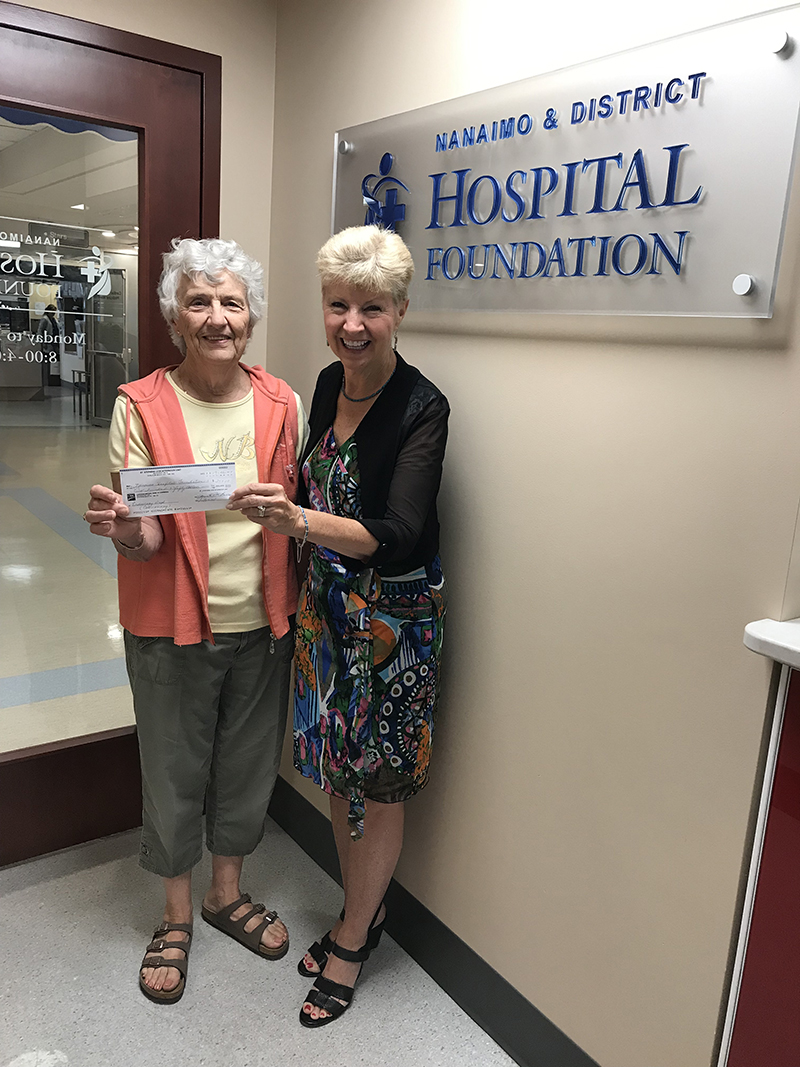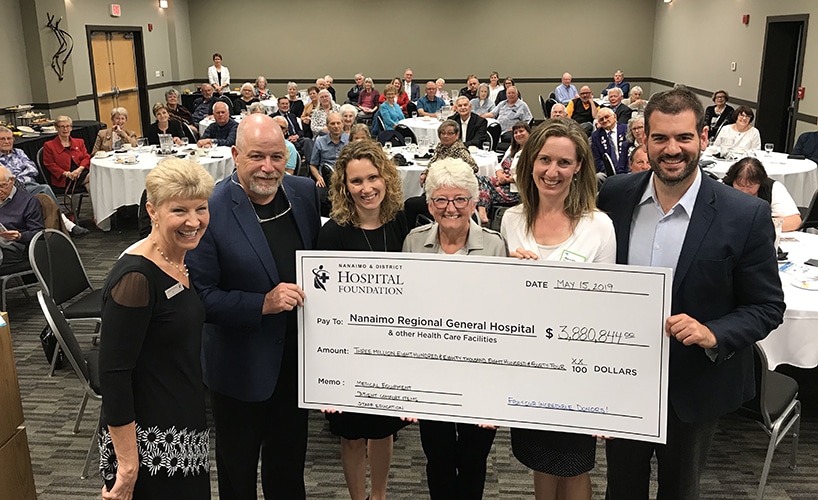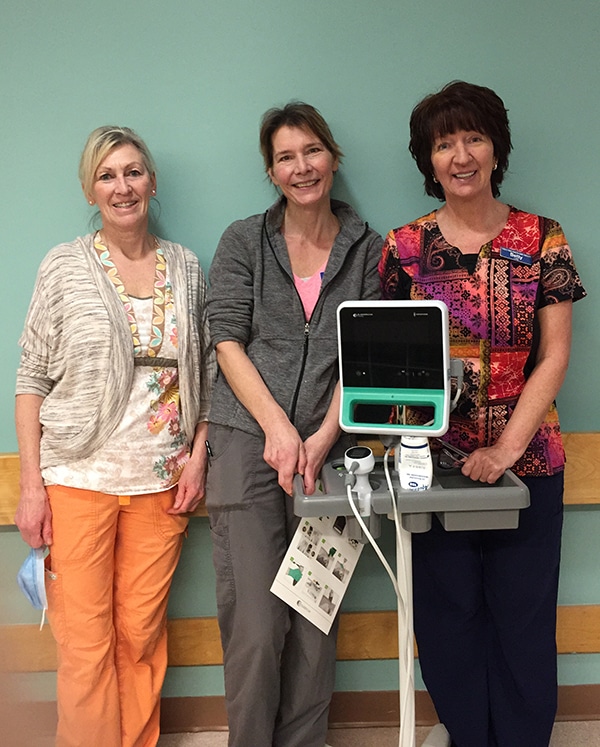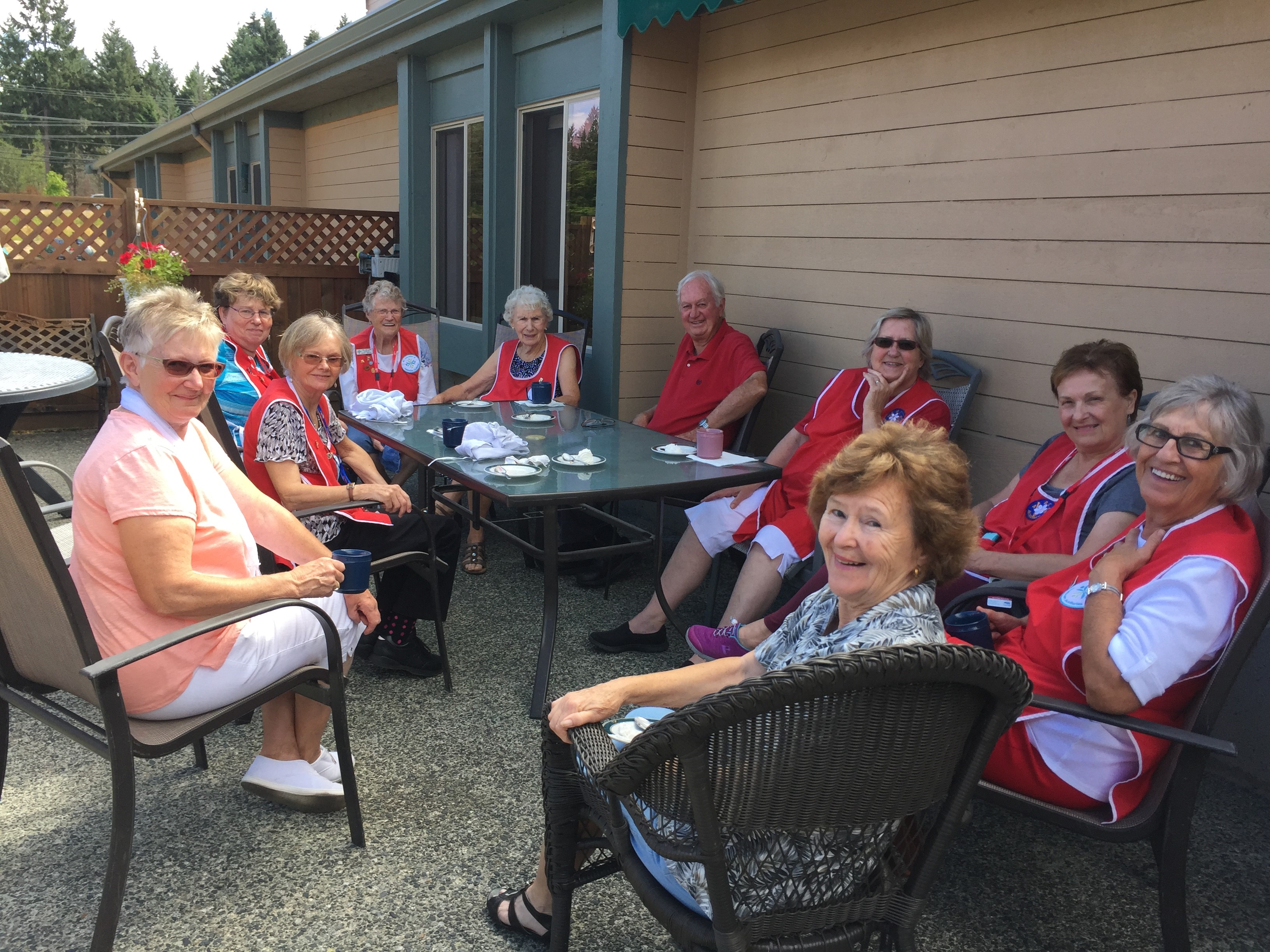
Thank you to St. Stephen’s United Church Women in Qualicum Beach for their generous $250 donation! The funds are supporting the new $1.5 million Endoscopy surgical suite at NRGH. Learn more about the campaign here: bit.ly/NRGHENDO

Thank you to St. Stephen’s United Church Women in Qualicum Beach for their generous $250 donation! The funds are supporting the new $1.5 million Endoscopy surgical suite at NRGH. Learn more about the campaign here: bit.ly/NRGHENDO

Due to the generosity of many donors, the Nanaimo & District Hospital Foundation was able to commit to over $3.8 million in funding to NRGH and the other care facilities it supports in the last fiscal year! The donations help fund medical equipment, patient comfort items, staff education and large projects such as the cardiac expansion at NRGH and Oceanside.
Read about some of the highlights over the past year on our news feed.
Thank you also to Dr. Rudston-Brown who was our guest speaker at our recent donor event where the photo was taken. He spoke about the importance of access to colonoscopies, why they are integral to our long-term health and the impact the new procedural suite in the Endoscopy Department at NRGH will have once it is built. Read about the colonoscopy campaign here.
Photo: Janice Perrino, CEO, Hospital Foundation; Dr. Blair Rudston Brown, Chief of Staff, NRGH; Sarah Sheridan, Temporary Director – Special Projects Surgical Services, NRGH; Moira Jenkins, Vice Chair, Hospital Foundation Board; Marci Ekland, Site Director, NRGH; Dr. Ben Williams, Executive Medical Director, GEO 2

Thanks to support from Newman’s Own Foundation, staff at Eagle Park Health Care Facility have a brand new bladder scanner! In the past, they did not have access to this diagnostic tool at Eagle Park, a 75 bed long term care facility in Qualicum Beach. With the new scanner, staff will be better able to care for their elderly residents and potentially prevent transfers to the Emergency Room or urgent care facilities.
About Bladder Scanners
A bladder scanner is a noninvasive, portable ultrasound device that provides a virtual 3D image of the bladder and the volume of retained urine. Bladder scans are commonly utilized in acute care, long-term care, and rehabilitation environments, as well as in physicians’ offices.
Without the use of a bladder scanner, urinary retention is assessed by performing an invasive “in and out” urinary catheterization. This procedure can be uncomfortable and increase a patient’s risk of infection. Bladder scanners are the safest option for patients.
Photo: Cindy Illerbrun, Carol Allen and Betty Piotrowska

Established on May 5, 1982, the Auxiliary and its dedicated volunteers have had a positive and lasting impact on the lives of hundreds of Lodge residents.
With an average of 55 members throughout the years, the Auxiliary made the daily lives of residents of the Lodge more comfortable and enjoyable. Their commitment has been unwavering; from operating the Tuck Shop and hosting special teas to helping to fund a bus for excursions.
Their support often went to the more personal level including providing a small Christmas gift to each of the residents and personalized birthday cards which often featured a special poem. One of their most recent projects was funding the installation of sunshade blinds on all the windows to increase the comfort for residents.
With their membership now down to 16, there just aren’t enough members to do all that needs to be done to keep the Auxiliary running. They will continue to operate the small Tuck Shop though as it means so much to the residents to have access to their favourite treats and little gifts they can purchase for their loved ones.
“The Nanaimo & District Hospital Foundation would like to thank the Trillium Auxiliary for their long and tireless support of Trillium Lodge in Parksville” said Janice Perrino, Nanaimo & District Hospital Foundation CEO. “The funds they have raised and the thousands of hours they have volunteered to enhance the lives of the Lodge residents and to help staff deliver even better care is just incredible.”
Residual funds and any future gifts will be held in trust by the Nanaimo & District Hospital Foundation and dispersed to Trillium Lodge as needed for two key areas: provision of select personal items to residents who could not otherwise afford them, and funding for monthly activities that keep the residents active and engaged.